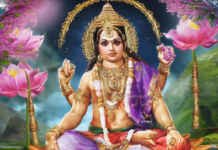Valentine’s Day is often associated with love, romance, and gift-giving. However, in some parts of the world, there is a much darker and less celebratory event that takes place on February 14th. In countries such as South Korea and India, this day is known as “Black Day,” a day dedicated to those who are single and have not received any gifts on Valentine’s Day or White Day. This article will delve into the dark history of Black Day and explore its significance in different cultures.
The Origins of Black Day
Black Day originated in South Korea in the early 2000s as a response to the commercialization of Valentine’s Day. In South Korean culture, it is customary for women to give gifts and chocolates to men on February 14th. Men reciprocate by giving gifts to women on March 14th, known as White Day. Those who do not receive any gifts on either occasion are left feeling lonely and excluded. To address this, Black Day was created as a day for those who are single to come together and commiserate over a shared meal of jajangmyeon, a black bean paste noodle dish.
The Significance of Black Day
Black Day holds different meanings for different people. For some, it is a lighthearted way to celebrate singleness and embrace the idea of self-love. It offers an opportunity for single individuals to come together and socialize without the pressure of being in a romantic relationship. For others, however, Black Day can be a stark reminder of societal expectations and a source of sadness and isolation.
The Celebration of Black Day
In South Korea, Black Day is typically observed by wearing black clothing and gathering with friends or attending singles’ events. Jajangmyeon, the traditional Black Day meal, is a symbol of comfort and solidarity among those who may feel left out during the Valentine’s Day festivities. Restaurants and cafes often offer special promotions on Black Day to attract single customers and create a sense of community.
Black Day Around the World
While Black Day is most commonly associated with South Korea, similar observances have emerged in other countries as well. In India, where Valentine’s Day is also a popular celebration, Black Day has gained traction among young adults who feel excluded from the romantic holiday. Like in South Korea, singles in India may gather to eat black-colored foods or participate in activities that embrace their single status.
Coping with Loneliness on Black Day
For many individuals, Black Day can amplify feelings of loneliness and isolation. It is essential to remember that being single does not diminish one’s worth or happiness. Here are some ways to cope with loneliness on Black Day:
Embrace Self-Love
Use Black Day as an opportunity to practice self-care and self-love. Treat yourself to a spa day, indulge in your favorite activities, or simply spend time doing things that bring you joy.
Connect with Others
Reach out to friends or family members who may also be single on Black Day. Plan a get-together, watch a movie, or have a meal together. Sharing experiences can help alleviate feelings of loneliness.
Engage in Meaningful Activities
Volunteering, joining a club, or taking up a new hobby can provide a sense of fulfillment and purpose. Engaging in activities that interest you can help shift the focus from being single to personal growth and exploration.
Seek Professional Help
If feelings of loneliness and despair persist, do not hesitate to seek support from a mental health professional. Therapy or counseling can offer valuable insights and strategies for coping with emotions related to singleness.
Overall, Black Day serves as a reminder that love and relationships come in many forms. Whether you are single or in a relationship, it is important to value yourself and prioritize your well-being. By embracing self-love and connecting with others, you can navigate the challenges of Black Day and find meaning and fulfillment in your own unique journey.
Frequently Asked Questions (FAQs)
1. What is the significance of wearing black on Black Day?
Wearing black on Black Day is a symbol of solidarity with other singles and a way to stand out from the traditional red and pink colors associated with Valentine’s Day.
2. Why is jajangmyeon the traditional Black Day meal?
Jajangmyeon, a black bean paste noodle dish, is associated with Black Day in South Korea because of its dark color, which represents the “black” mood of singles who feel left out on Valentine’s Day.
3. How can I celebrate Black Day if I am not in South Korea or India?
You can celebrate Black Day wherever you are by organizing a gathering with other single friends, enjoying black-colored foods, or engaging in activities that promote self-care and self-love.
4. Is it necessary to participate in Black Day if I am single?
Participation in Black Day is optional and depends on personal preference. Some individuals may find it comforting to connect with others on Black Day, while others may choose to spend the day in a different way.
5. How can I support a friend who is feeling lonely on Black Day?
You can support a friend who is feeling lonely on Black Day by reaching out to them, spending time together, and offering a listening ear. Encouraging them to engage in activities they enjoy can also help boost their spirits.









